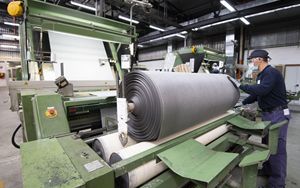(Finance) – The number of short-time workers in Germany decreased despite the economic slowdown. According to estimates by the ifo institute based on a business survey and data from the Federal Employment Agency, in August there were 110,000 people working part-time compared to 150,000 in May. “So far the weak German economy has had little effect. One reason could be that the rules facilitating access to short-time working allowances expired at the end of June,” he said Sebastian Links, labor market researcher at Ifo. As a percentage of the workforce the share fell from 0.4 to 0.3%.
Part-time work is one form of part-time unemployment which applies especially in case of temporary lack of orders. Employees receive short-time compensation equal to unemployment compensation for the hours lost.
The sector manufacturing represents approximately 80% of short-time workers. But even there the number fell from 118,000 to 89,000 – or from 1.7 to 1.3 percent of the workforce in this segment. However, not all sectors have seen a decline. The number of short-time workers increased inbase metals industry (from 7,400 to 11,000) and between machinery and equipment manufacturers (from 13,000 to 20,000). “Interestingly, short-time working did not play a role in the sector constructiondespite the fact that sentiment is extremely low,” underlined L
ink. In August the estimated number of short-time workers was 7,000, about the same as in May (8,000). In the tradethe figure was 3,000, down from 6,200, and for all service providers combined, the figure was just 11,000, down from 18,000.
In August 2022, the number of short-time workers was lower in the economy as a whole: 76,000 people – 0.2% of the workforce – worked short-time. At the height of coronavirus crisisin April 2020, the figure reached 6 million, or 17.8%.
